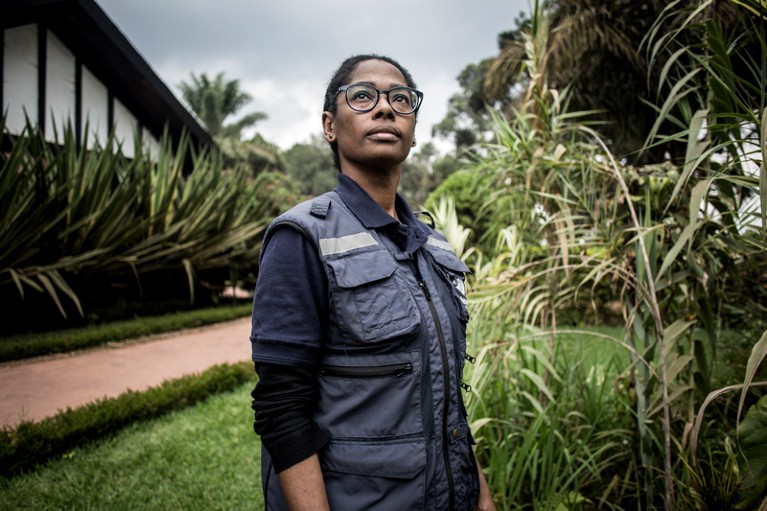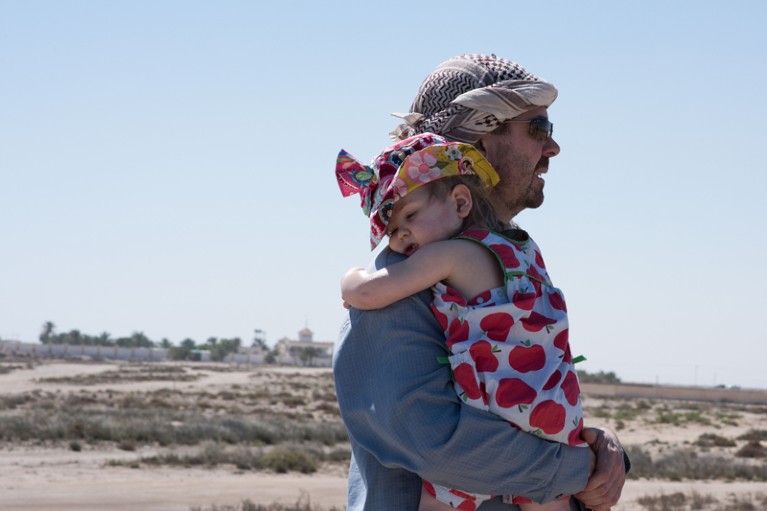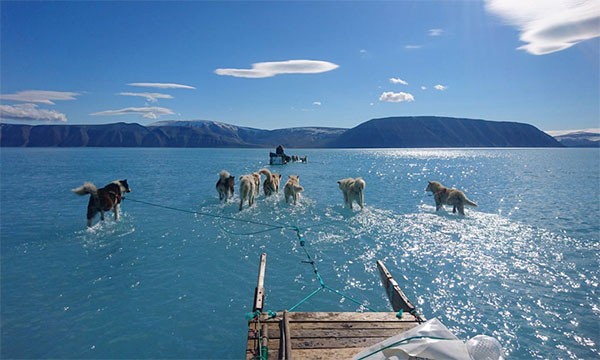Hello Nature readers, would you like to get this Briefing in your inbox free every day? Sign up here.

Marie-Roseline Darnycka Bélizaire, an epidemiologist from Haiti, is helping to coordinate the World Health Organization’s Ebola response.Credit: John Wessels for Nature
Meet the Ebola workers battling a virus in a war zone
On the front line of the Ebola crisis in the Democratic Republic of the Congo, staff from the World Health Organization fight to save lives, build trust and stay safe themselves. Some have seen colleagues injured or killed while trying to halt the deadly virus. “It is very intense, but I am totally devoted to serving the people,” says epidemiologist Marie-Roseline Darnycka Bélizaire.
A new technique to measure pressure
US researchers have developed a new way to define pressure. For nearly 400 years, air pressures have been measured using mercury-based instruments called manometers. The new pressure sensor, called a fixed-length optical cavity, compares the speed of a laser travelling through a gas-filled cavity with that of an identical beam in a vacuum. Quantum calculations can then be used to determine the gas’s ‘energy density’, which is equivalent to pressure. If widely accepted, the method would do away with the need for mercury, which is toxic and faces international bans.
The genes that sculpt tentacles and legs alike
Cuttlefish and their kin form tentacles by deploying the same genes that direct the growth of arms in humans and legs in spiders — despite the fact that these animal groups evolved limbs independently. The results suggest that genetic programs driving appendage development have been conserved for more than 500 million years, even if the appendages themselves have not.
Nature Research Highlights | 1 min read
Get more of Nature’s Research Highlights: short picks from the latest papers.
FEATURES & OPINION
Prepare river ecosystems for an uncertain future
Ongoing human development and climate change mean that river managers can’t look to the old tools that aim to restore ecosystems to their original state, argue nine biologists in Nature. They describe how waterways can be managed adaptively to maintain water supplies and avoid devastating population crashes in riparian environments.
How to build the science Africa needs
To cope with climate change and population growth, the continent urgently needs more home-grown researchers, argue ecologists Anagaw Atickem, Nils Chr. Stenseth and colleagues. They call for incentives for international researchers who collaborate with African colleagues, extra support for graduate students from the continent who are studying abroad and better working conditions for scientists in Africa.
Podcast: Robo-fish powered by battery ‘blood’
A robotic fish is powered by ‘robot blood’ that stores energy like a battery and also physically moves the fins. The blood increased the amount of energy stored in the robot by 325%, compared with a machine that has a separate battery and hydraulic-fluid system. Robotocist Rob Shepherd tells the Nature Podcast how the innovation saves on weight and power.
Nature Podcast | 23 min listen
Subscribe to the Nature Podcast on iTunes or Google Podcasts.
BOOKS & ARTS
Five best science books this week
Barbara Kiser’s pick of the top five science books to read this week includes life’s innovations, the enigma of gravity, and how to feed 8 billion people.
SCIENTIFIC LIFE

Archaeologist Colleen Morgan’s daughter with her father Daniel Eddisford, also an archaeologist, at a field site in Qatar.Credit: Colleen Morgan
How to do fieldwork with kids in tow
From childcare to schooling, juggling family life with fieldwork has many challenges. Researcher-parents tell Nature how they balance their children’s needs with work priorities while in the field.
Are you a PhD student?. Tell Nature your story and share what you find most challenging — and most rewarding — about life as a doctoral candidate. Take part in our biennial PhD student survey to make yourself heard in Nature’s coverage of PhD life worldwide, and be in with a chance to win £250 in our prize draw. Click here to take the survey.
A skilful route out of academia
Former biochemist Catriona Manville leveraged her science background into a career as a research leader for the non-profit organization RAND Europe. She shares her tips for transitioning into a career outside academia.
IMAGE OF THE WEEK

Climate researcher Steffen Olsen captured this stunning image of a dog sled traversing sea ice covered with meltwater to retrieve scientific equipment in northwest Greenland. “Communities in #Greenland rely on the sea ice for transport, hunting and fishing,” said Olsen. “Extreme events, here flooding of the ice by abrupt onset of surface melt, call for an incre[a]sed predictive capacity in the Arctic.”STEFFEN M. OLSEN/The New York Times/eyevine
